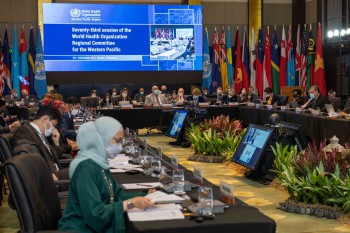Asia-Pacific health ministers work to reach the unreached, combat cervical cancer and promote mental health
MANILA, Philippines l 28 October 2022 – During the final day of the seventy-third session of the World Health Organization (WHO) Regional Committee for the Western Pacific, delegates endorsed frameworks that aim to reach the unreached, prevent and control cervical cancer and promote the highest level of mental health and well-being for all people in the Region.
Reaching the unreached
Four decades of rapid economic growth, innovation and action on health have reshaped the Western Pacific Region, but not everyone has enjoyed an equal share of the benefits. As a result, many people still cannot access good-quality health services, and they experience poor health outcomes. The pandemic has also shown how systems that cannot efficiently reach the unreached compromise health responses at all levels.
Today, at the seventy-third session of the WHO Regional Committee for the Western Pacific, health leaders endorsed a Regional Framework for Reaching the Unreached in the Western Pacific (2022–2030), which calls on countries, partners and stakeholders to take these steps:
• Demonstrate strong political commitment and leadership to ensure changes to address the factors that create disadvantages and leave people unreached by health systems.
• Align governance, financing and legal structures to develop systems that can overcome key issues and engage unreached communities.
• Engage stakeholders across multiple sectors to maximize the available resources for pursuing health systems that reach the unreached and achieve equitable outcomes.
• Build data and evidence systems and capabilities for using those systems progressively so that unreached groups can be identified and progress monitored.
• Transform health systems so that they are based on strong primary health care, are comprehensive, integrated, high-quality and people-centred, and routinely reach unreached groups.
• Maintain capability for fast responses to specific challenges or crises impacting unreached populations beyond the immediate capacity of existing health services.
In addition, the Regional Framework calls on WHO to support Member States to reach the unreached through all the Organization’s health programmes and health transformation efforts.
A preventable and curable disease
More than 95% of cervical cancer cases are linked to infection with high-risk human papillomavirus (HPV). While most HPV infections resolve spontaneously and cause no symptoms, persistent infections can cause cervical cancer in women. In the Western Pacific Region, an estimated 145 700 women were diagnosed with cervical cancer in 2020, and 74 900 died from this largely preventable and curable disease.
Cost-effective interventions can generate substantial social and economic returns. For each US dollar invested in cervical cancer prevention and control, an estimated US$ 3.20 will be returned to the economy through increased participation of women in the workforce alone.
In endorsing the Strategic Framework for the Comprehensive Prevention and Control of Cervical Cancer in the Western Pacific Region, governments have committed to developing policies, implementing programmes and shaping advocacy to eliminate cervical cancer in the Region. They will accomplish this by:
- Stepping up vaccination against HPV, making vaccines more affordable and accessible, and integrating their delivery into national vaccination programmes.
- Increasing screening coverage by strengthening human resources for health and including cervical cancer screening and treatment of precancerous lesions into local, regional and national cancer-control plans.
- Ensuring timely, quality treatment by establishing guidelines for the management of all stages of cervical cancer, ensuring access to treatment and providing referral pathways for higher-level care, including setting up subregional hubs.
The Strategic Framework calls on WHO in the Region to continue to provide technical assistance to develop and implement cervical cancer action plans and set up screening programmes, develop advocacy and communication materials, and identify cost-effective means to sustain availability of HPV vaccines and tests. Moreover, WHO and its collaborating partners will support efforts to improve the skills of the health workforce and provide technical assistance towards strengthening health service delivery by integrating and improving accessibility at the primary health-care level.
Prioritizing everyone’s mental health and well-being
More than 200 million people in the Western Pacific suffer from a mental health condition, yet current approaches leave too many people, families and communities without essential services and support. The ongoing COVID-19 pandemic has also impacted mental health and well-being, making existing challenges worse while exposing many people to protracted stress and difficulty.
Adopted today by the Regional Committee, the Regional Framework for the Future of Mental Health in the Western Pacific 2023–2030 calls on Member States, partners and stakeholders to promote the highest level of mental health for everyone in the Region by:
- Refocusing the mental health agenda to include well-being and reaching the unreached through leadership that champions mental health for all.
- Transforming mental health support and care into a community-based ecosystem of health and social services and innovations, enabled by a well-trained mental health workforce, delivering the full range of interventions and underpinned by a responsive information system.
- Embedding mental health into the settings and journeys of daily life by placing the well-being of communities at the centre and engaging partners within and beyond the health sector to help individuals, families and societies thrive and flourish.
The Regional Framework calls on WHO to advance the mental health agenda in the Region and work collaboratively with a network of partners, including mental health experts, collaborating centres and other stakeholders, to support Member States in achieving this bold new vision for the future.
Conclusion of the session
This year’s session of the WHO Regional Committee for the Western Pacific concluded today, with delegates agreeing to hold the seventy-fourth session from 16 to 20 October 2023 in Manila, Philippines.
New products
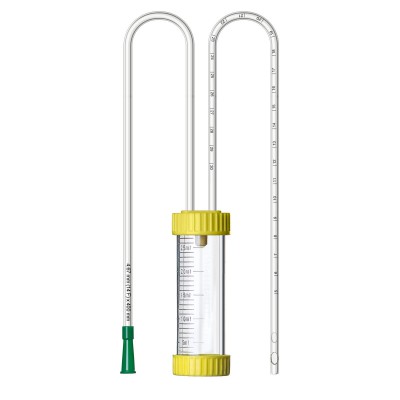
Device for aspiration of mucus congesting the upper airways of the newborn or for suctioning tracheal / bronchial secretions (of newborns, children and adults) which will be analysed in laboratory.
See more
Safety Scalpel has a reusable stainless steel handle similar in weight and balance to traditional metal handle scalpels, providing surgeons and techs with necessary safety features without losing the familiarity, control and ease-of-use of their current scalpels.
See more
Reusable Stainless Steel Handles with a measure or graduation on the reverse side to assist with training, marking of the correct surgical site and trauma injury investigations. Fitment No.3. for Blades - No.6, 9, 10, 10A, 10R, E/11, 11, 11P, 12, 12D, 13, 14, 15, 15A, 15C, 15T, 16, 40 and SG3.
See more
Yankauer Suction Set is used for suctioning of oropharyngeal secretion or clears the operative site like fluid, blood or pus from a wound or body cavity.
See more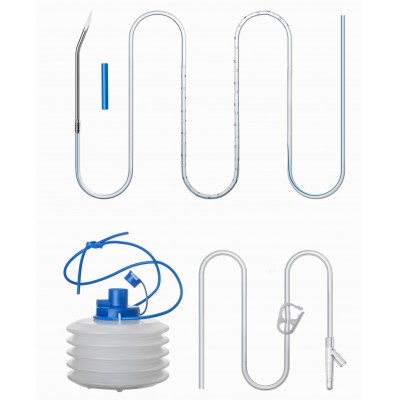
Closed Wound Suction Unit is an effective device for closed wound drainage under negative pressure post operatively. Made from non toxic, non-irritant PVC.
See more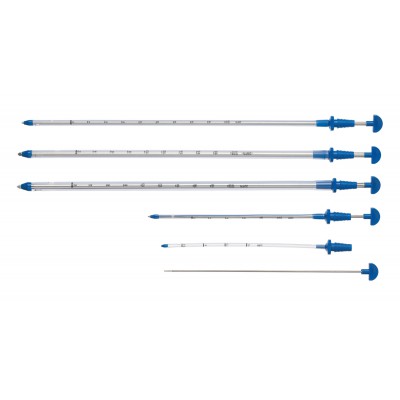
Used for rapid non operative plueral and Chest drainage. Manufactured from non toxic, medical grade PVC compound.
See more
Oral Airway Kits include a range of sizes in 6, 7, or 8-piece kits for convenience. These oral airways are polypropylene and feature a smooth, non-brittle finish that permits easy insertion with a reinforced bite block to prevent airway collapse.
See more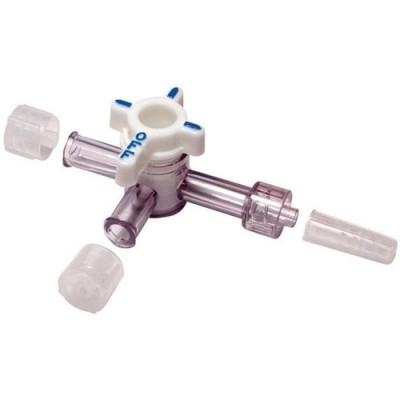
3-Way Stopcock with Swivel Male Luer Lock are a leading choice of anesthesiologists and critical care workers worldwide.
See more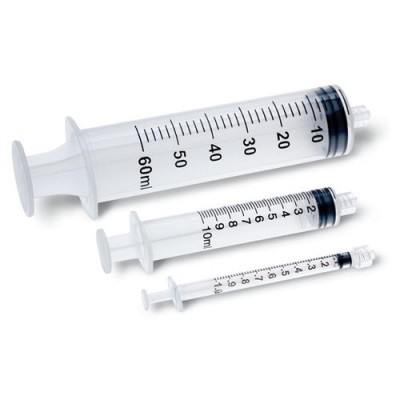
Economy Syringes Without Needle offer easy dosage measurement and observation of air bubbles and flashbacks. These syringes are available in a wide range of sizes and are packaged sterile. These syringes are also latex and pyrogen free.
See more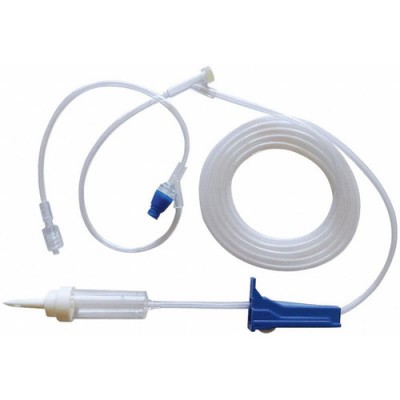
83" 10 Drop/mL Admin Set has a non-vented drip chamber with a roller clamp and split septum Y-site with a needleless PRN and rotary male luer lock. This set is individually packaged and is sterile.
See more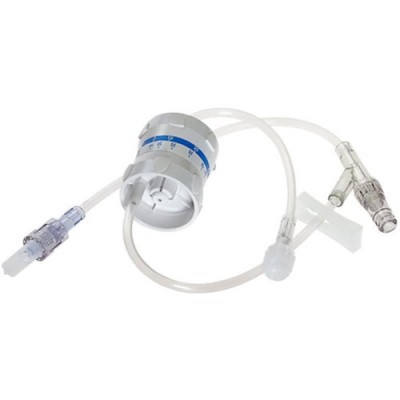
20" Extension Set is designed to control IV fluid and medications using a 'regulator dial' to control the rate of infusion. This extension set has a pre-pierced injection Y-site with a slide clamp and a rotating male leur lock and is latex-free.
See more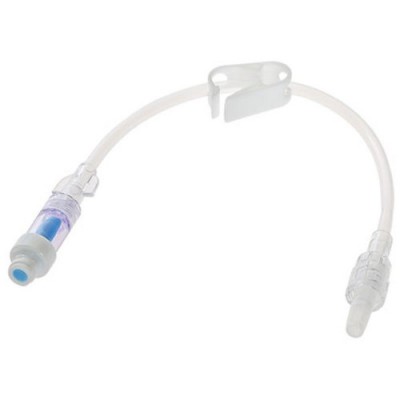
Extension Set with Sure-Lok Connector has a needleless Sure-Lok connector with a rotating male leur lock. It is non-pyrogenic and DEHP and Latex-free. This extension set is packaged sterile.
See more
